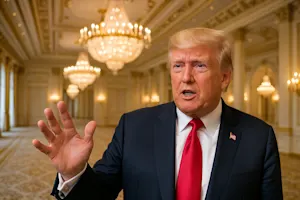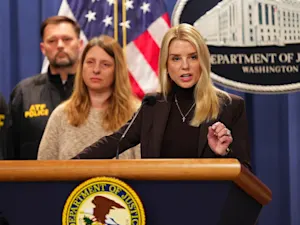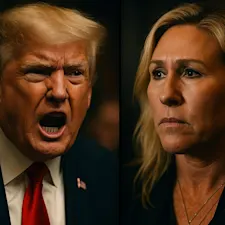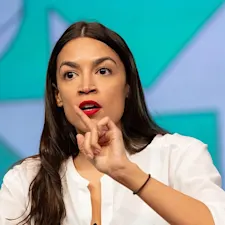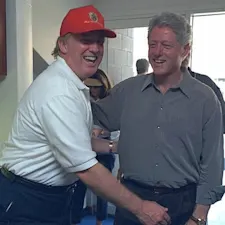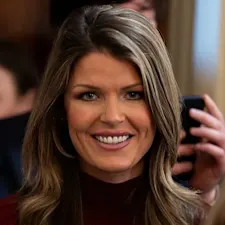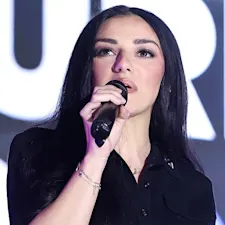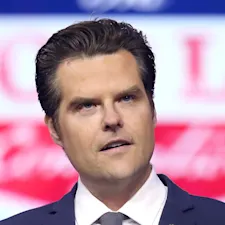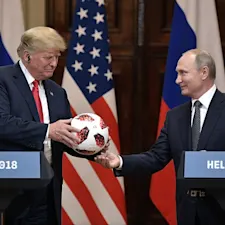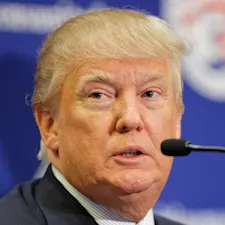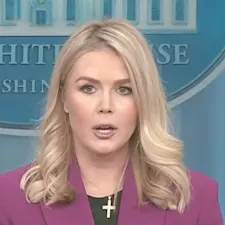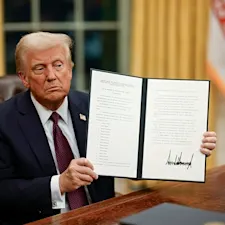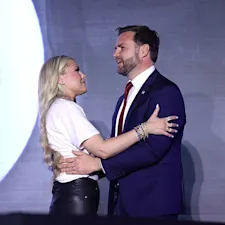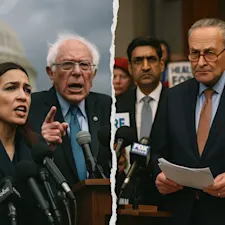
Cheney Gets 'Last Laugh' as Trump and Vance Snubbed at Funeral
Dick Cheney as Vice President of the United States, 2003. Photo courtesy of the Executive Office of the President of the United States. Public domain.
Former Vice President Dick Cheney's funeral at Washington National Cathedral drew a star-studded, bipartisan crowd, but notably absent were President Donald Trump and Vice President JD Vance. Their exclusion marked a sharp break from tradition, underscoring the deep divisions now cleaving the Republican Party and raising questions about the future of political rituals in America.
A Funeral Without Trump or Vance
The funeral service for Cheney, who died at age 84 from complications of pneumonia and cardiac and vascular disease, was held on a Thursday morning in Washington, D.C. It brought together a mix of political heavyweights from both parties, including former Presidents George W. Bush and Joe Biden, and former Vice Presidents Kamala Harris, Mike Pence, Al Gore, and Dan Quayle. The event also featured former House Speaker Nancy Pelosi and Supreme Court Chief Justice John Roberts in attendance. Yet, President Trump and Vice President Vance were not invited, a decision confirmed by multiple sources including Fox News and PEOPLE.
The absence of Trump, who is currently serving his second term, was particularly striking given the customary practice of sitting presidents attending funerals of former presidents and vice presidents. However, this tradition is not a legal requirement, and the snub reflected the fraught relationship between Trump and the Cheney family. Cheney's daughter, Liz Cheney, a former Republican congresswoman, was a leading figure in the House investigation into Trump's role in the January 6 Capitol riot and has been a vocal critic of the former president. Both Liz and her father endorsed Kamala Harris during the 2024 presidential campaign, further widening the rift.
The Political Backdrop
Dick Cheney's political career spanned decades, including roles as a Wyoming congressman, White House chief of staff, Secretary of Defense, and two-term Vice President under George W. Bush. He was a central figure in shaping U.S. policy during the post-9/11 era, including the wars in Iraq and Afghanistan. Despite his polarizing reputation, Cheney was widely regarded as a powerful and influential statesman who commanded respect across party lines.
The funeral service reflected this bipartisan respect, with Bush delivering the eulogy and praising Cheney as "everything a president should expect in a second-in-command," as reported by The Guardian. The front pews were filled with a mix of Republicans and Democrats, signaling a moment of unity amid a fractured political landscape. Yet, the conspicuous absence of Trump and Vance highlighted how political allegiances have shifted dramatically.
Liz Cheney's Role and the GOP Divide
Liz Cheney's role in the January 6 investigation and her outspoken criticism of Trump have made her a pariah within much of the Republican Party. She was ousted from her leadership position in the House and lost her primary reelection bid after Trump endorsed her opponent. Her father's support for her efforts and his own sharp rebukes of Trump have only deepened the divide.
In a campaign video for his daughter, Dick Cheney warned, "In our nation's 246-year history, there has never been an individual who is a greater threat to our republic than Donald Trump," accusing him of trying to steal the 2020 election through "lies and violence," as reported by PEOPLE. Liz Cheney echoed this sentiment on X, warning that dictators destroy free nations by threatening opponents with death and calling Trump "a petty, vindictive, cruel, unstable man who wants to be a tyrant."
At the funeral, Liz Cheney spoke about the lessons her father taught her about public service and the importance of defending the Constitution over party loyalty. She reportedly alluded to her decision to lead the effort to hold Trump accountable for his role in the Capitol riot, framing it as a constitutional duty despite the political cost.
The Exclusion's Symbolism
The decision to exclude Trump and Vance from the funeral service has been interpreted as a reflection of the ongoing realignment within the Republican Party. Trump's dominance over the GOP base and his clashes with establishment figures like the Cheneys have created new fault lines. Vance, a Trump ally and current Vice President, was also left off the guest list, signaling that the rift extends beyond personal animosities to institutional divides.
The funeral's guest list, packed with old-school Republicans and bipartisan figures, contrasted sharply with the absence of Trump and his closest allies. This juxtaposition underscores the tension between traditional Republican values and the populist, Trump-led faction that has reshaped the party.
A Break From Tradition
While it is customary for sitting presidents to attend funerals of former presidents and vice presidents, the exclusion of Trump breaks with precedent. The White House confirmed that Trump was aware of Cheney's passing and that flags were lowered to half-staff in accordance with statutory law, but the president's schedule did not include the funeral, which coincided with his intelligence briefing.
The funeral was an invite-only event, reportedly with over 1,000 guests, reflecting the high-profile nature of Cheney's legacy. Yet, the snub of the sitting president and vice president signals a new norm in political etiquette, where personal and political conflicts can override longstanding traditions of respect and unity.
The Emotional Weight
Cheney's family described him as a "noble giant of a man" who taught his children and grandchildren to love the country and live lives of courage, honor, and kindness, as reported by Fox News. The funeral was a moment to honor a man who served the nation in multiple capacities and left a lasting impact on American politics.
At the same time, the event highlighted the emotional and political fractures that have come to define the current era. The exclusion of Trump and Vance from the funeral serves as a stark reminder of how deeply divided the country and its political parties have become, even in moments that traditionally call for unity and respect.
What This Means Going Forward
The Cheney funeral's guest list and the absence of Trump and Vance raise urgent questions about the health of democratic rituals in the United States. The breaking of tradition in honoring a former vice president who served under both Republican and Democratic administrations signals a shift in how political respect is negotiated.
As the GOP continues to grapple with internal divisions, the funeral may be remembered as a moment when old alliances gave way to new realities. Whether this signals a permanent change in political etiquette or a temporary rupture remains to be seen, but the message is clear: the political landscape is more fractured than ever, and even the most solemn occasions are not immune.
For now, the nation witnessed a funeral that honored a decades-long public servant while laying bare the fractures within the party he once helped lead. The absence of Trump and Vance was a powerful symbol of those divides, leaving many to wonder what the future holds for the Republican Party and the traditions that have long bound American politics.
References: Trump not invited to Dick Cheney funeral at National Cathedral service: Report | Donald Trump and JD Vance snubbed for Dick Cheney's funeral | Dick Cheney | Donald Trump and JD Vance Not Invited to Dick Cheney's Funeral: Report




